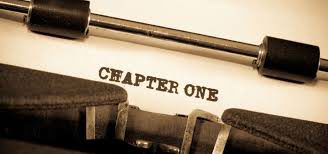Here come two posts, the first one is more of an idea, the second a suggestion for practicing what the idea is about. My question for today: How can we (who struggle with addiction) reconcile our radically different self-narratives, some of which seem so ugly, and arrive at self-acceptance and self-compassion?
We know that self-anger, self-disgust, shame, and the accompanying frustration and depression are among the greatest challenges to overcoming addiction. We feel fragmented, made of pieces that can’t possibly fit together. We crave, we choose to use, we take care of ourselves at the expense of others, and we lie (without hesitation) to protect our habit. Yet we can’t let go of the sense that we are also good, or at least have been good. We are caring, and generous, and smart, and very often responsible. How can we possibly fit these views of ourselves together?
According to thinkers and researchers in developmental psychology and adolescent development, we just lost the game of growing up. In fact philosophers and writers down through the ages have come to the same conclusion. The main task of growing up is to create a coherent narrative about who we are. A coherent self-narrative. Yet that seems to be very difficult for addicts.
A big part of our sense of self, our identity, the “me” we show others, is in fact a narrative, a story. This is who I am. This is where I came from. This is what happened to me. That caused me to do such and such. And then this happened. And now, this is where I am, this is who I am, and — most important — this is where I’m going.
I’ve written (especially in The Biology of Desire, last chapter) about how difficult it is for addicts to create and hold onto a coherent self-narrative. I’ve suggested that addicts can be helped, or can help themselves, by solidifying that narrative and (most important) extending it into the past and the future. Because of the pull of the present moment (“now appeal” — e.g., wanting only to get high today and forgetting about tomorrow) it’s crucial to stretch the time-line. We should try to extend the narrative into the past, to understand how we got to be this way, and into the future, so we can begin to imagine being someone different, someone freer and happier, and aim ourselves there deliberately. I’ve suggested that scaffolding (by therapists, friends, loved ones) can help create and maintain this extended narrative. It’s too hard to do it alone.
But it’s damn hard to do even with the best of help! Here’s why. What most of the experts miss is that we are made up of more than one narrative. We often have two or three or four going at the same time. Psychologists sometimes talk about parallel identities: e.g., I’m a parent, but I’m also an American, or I’m  also a plumber, or I’m also hot! Okay, but that stuff is easy. Multiple self-narratives are particularly challenging for addicts, because they fit together so poorly. There’s the self that often gets called the “addict self.” There’s this me who was abused, or thrown out, or traumatized in adolescence, and all I could find to feel better was this or that
also a plumber, or I’m also hot! Okay, but that stuff is easy. Multiple self-narratives are particularly challenging for addicts, because they fit together so poorly. There’s the self that often gets called the “addict self.” There’s this me who was abused, or thrown out, or traumatized in adolescence, and all I could find to feel better was this or that  drug, so that’s what I go after. That’s one “addict self.” There are others that aren’t so benign. There’s the “I’m such a loser” version — very common, very hard to shake. Or its close cousin: “I’m just a teenage dirt-bag.” In other words, a piece of shit. When I (Marc, personally) was addicted, I saw myself as sneaky and determined and defiant, all of which fit into one narrative…which didn’t resolve for years.
drug, so that’s what I go after. That’s one “addict self.” There are others that aren’t so benign. There’s the “I’m such a loser” version — very common, very hard to shake. Or its close cousin: “I’m just a teenage dirt-bag.” In other words, a piece of shit. When I (Marc, personally) was addicted, I saw myself as sneaky and determined and defiant, all of which fit into one narrative…which didn’t resolve for years.
But addicts also have self-narratives that are positive, even admirable. We may see ourselves as nurturing and compassionate, especially if we are parents (or lovers). Those are real narratives too: I had this baby and I learned to take care of her and I love her so much and I’ll continue to do anything for her. We may have self-narratives in which we are heroes or rebels, not beholden to others. Or simply victims.
The point is that these narrative threads really don’t cohere. They don’t jibe, they don’t reconcile. They are just too different to blend into a single story line. So we get torn apart by the tension between one self-narrative and another. From an email I recently received: How can I have gone back to meth, when I know that I’ll never get custody of my child now! Not ever! I hate myself so much. Or: How can I steal money from my own mother and still see myself as loving her and caring for her?! How can I be worthy of being drug-free when I’m so indulgent, so weak?! These stories cannot be merged. They are too discrepant.
 So here’s what I want to suggest. Bump up a level. Recognize that you do contain distinct, incompatible self-narratives. Create an uber-narrative that allows for each component narrative and doesn’t have to shut any of them down. Now you can let yourself get to know each of these self-narratives. Make each one conscious, talk it out, recount the plot-line, to yourself or others, write about it. But realize that they will not blend into one nice story. Bump up a level to a more insightful, wiser self who recognizes each of these radically different story
So here’s what I want to suggest. Bump up a level. Recognize that you do contain distinct, incompatible self-narratives. Create an uber-narrative that allows for each component narrative and doesn’t have to shut any of them down. Now you can let yourself get to know each of these self-narratives. Make each one conscious, talk it out, recount the plot-line, to yourself or others, write about it. But realize that they will not blend into one nice story. Bump up a level to a more insightful, wiser self who recognizes each of these radically different story  lines as real…and lets them coexist.
lines as real…and lets them coexist.
Try it. Pull yourself up to the level of the overseer. Be a real author, a real choreographer, who can shift from one plot-line to another and accept that they are not ready to be stitched together. Not yet.
I think there are at least two benefits to be had. Number 1: When you stop trying to reconcile your “addict self” with, say, your “caring self,” you release yourself from an enormous amount of tension and frustration. You are both of these. Accept them both. Number 2: By accepting each of these self-narratives as real and maybe even inevitable, and by making them conscious, you provide a space for true self-acceptance. Self-compassion. Even self-love.
………..
Next post: how this “retelling” might relate to that squishy idea we hear so much about — mindfulness.

Leave a Reply